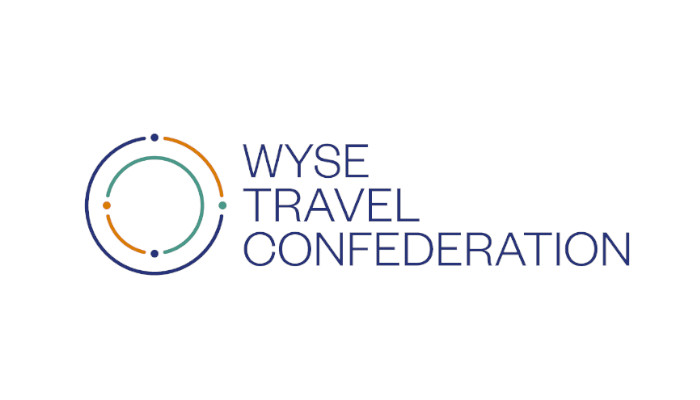The WYSE Travel Confederation Accommodation Panel gets together every few weeks to catch up on what’s going on in the accommodation sector; the latest trends, what’s shaking up the industry, and the hurdles that need to be overcome.
Below is a look at some of the recent topics that have arisen during Q2 2024. If you would like to contribute to any of these topics, our Membership team would be delighted to hear from you.
Western Europe’s struggles and opportunities
Etienne Matichard, Director of Sales and Distribution at JO&JOE, highlighted the current difficulties facing the accommodation industry in Western Europe. Sales are down, and the outlook remains bleak, compounded by political unrest in France and issues related to the upcoming Olympics.
A recent study reveals that many people looking for accommodation for the Olympics haven’t booked yet, with many likely to choose hotels or hostels. Read about data insights into France ahead of the Olympics.
Interestingly, the high prices expected during the Olympics have led to a projected 200% increase in hostel demand compared to last year, which could benefit French hostels significantly.
Read here for the evolution of average advertised prices for the Olympics for 5, 4 and 3 star hotels.
Read more about pricing trends in the French hotel industry.
Italy, however, presents a contrast, with Rome experiencing its second-best year ever. Despite the global industry’s positive performance, Western Europe faces unique challenges, including adverse weather affecting businesses with outdoor spaces and the potential for further unrest due to upcoming the elections in France.
Post-COVID tourism rends
Italy, however, presents a contrast, with Rome experiencing its second-best year ever. Despite the global industry’s positive performance, Western Europe faces unique challenges, including adverse weather affecting businesses with outdoor spaces and the potential for further unrest due to upcoming the elections in France.
The tourism landscape post-COVID-19 has been dynamic, with regions experiencing sequential booms. Dubai saw an initial surge, followed by the US, Western Europe, and now Asia. Japan, in particular, has nearly doubled its tourist numbers. While Western Europe experienced a wave of tourists immediately after the COVID lockdowns, the current trend is shifting towards Asia.
Tom Cooney, CEO of Tourism Adventure Group, noted that Japan has become the top desired destination for young Australian tourists, surpassing Western Europe. This shift is driven by financial constraints and the affordability of flights to Japan compared to longer journeys to Europe.
Read about data from Student Universe highlighting Japan as a popular destination for Australians.
Australian market insights
Australia’s tourism market has mirrored trends seen in Europe post-COVID, albeit with a six-month delay. After a boom, Australia faced a challenging winter with high rates but is now seeing a strong rebound in the summer. However, arrival numbers into major cities like Melbourne and Sydney have dropped significantly, while New Zealand is recovering with increased visitors from North Asia.
Financial constraints initially caused a drop in visitor numbers, but there is renewed market activity, with businesses like Haka House expanding their offerings. Australia’s recent expansion of its working holiday visa age limit for UK residents to 35 is expected to stimulate demand, potentially increasing the UK market for working holiday visas by 40%.
The importance of activities in hostels
Tom Cooney emphasised the significance of including activities at hostel properties, as highlighted at the APAC Hostel World Conference in Chiang Mai. Data from Hostelworld showed that guests who participate in activities are far more likely to leave positive reviews. Specifically, 75% of guests who engage in activities leave reviews, compared to 25% who do not, and positive review rates are 80% for those who participate in activities versus 60% for those who do not. This underscores the impact of activities on guest satisfaction and social cohesion.
Trends in the UK market
Kevin McCormick, Head of Commercial Operations at the University of Bath, provided an update on the accommodation situation in Bath. All options except hostels like Premier Inn and Travelodge are fully booked, with prices reaching up to GBP 180 per night. This unusual availability of hostel beds suggests a potential shift in travel habits, possibly influenced by the stronger sterling against the euro, making European travel more expensive for some.
Conclusion
The accommodation industry is navigating a complex landscape marked by regional disparities, post-COVID shifts in tourism trends, and the growing importance of offering experiences alongside traditional lodging. As Western Europe grapples with political and economic challenges, other regions like Asia and Australia are emerging as strong contenders in the global tourism market.
The increasing demand for activities and communal experiences, particularly among solo female travellers, points to evolving traveller preferences that the industry must continue to adapt to. Read more about about how Gen Z and millennials propel a guided tours comeback.

